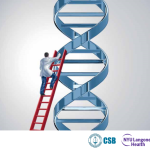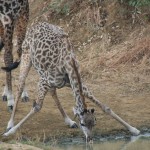KONKURS
Seminar “Editovanje gena”
Centar za bioetičke studije organizuje dvomesečni seminar ”Editovanje gena”. Biće održano po jedno predavanje svake sedmice, tokom marta i aprila 2017. godine. Seminar će otpočeti uvodom u naučne aspekte i način funkcionisanja osnovnih tehnika editovanja gena (sa akcentom na CRISPR). Nakon toga će se razmatrati etički aspekti upotrebe ovih tehnologija. Takođe, biće reči o potencijalnim opasnostima ovih tehnologija za društvo, ekonomiju, kao i o psihološkim faktorima na koje bi ove tehnike mogle da imaju uticaj. Razmatraće se i teme kao što su ksenotransplatacija, GMO hrana i biotehnologija patogena, pa će se u okviru seminara pokrenuti i pitanje da li je prirodno nužno i zdravija opcija. Seminar će biti održan na engleskom jeziku. Na seminar su pozvani svi zainteresovani studenti osnovnih, master i doktorskih studija i zainteresovani profesionalci. Broj mesta je ograničen. Rok za prijavu je 5. mart 2017. Na seminar se možete prijaviti putem mejla: konkurscbs@gmail.com
Predavači na seminaru su:
Ursula Bartečo – studentkinja master studija biotehnologije
Jelena Dimitrijević – doktorantkinja filozofije
Danilo Polić – student master studija filozofije
Ursela Barteczko 1. Gene editing – a scientific introduction
This lecture will give an easily understandable introduction to the topic of gene editing from the natural scientist´s point of view. Examples of gene editing that are widely applied and accepted in our society will be presented.
Danilo Polić 2. CRISPR/Cas9: ethical challenges
If evolution is an extremely slow and, at times, unpredictable process, then should we take it into our own hands? If we can modify animals so that humans can benefit and that isn`t harmful for the ecosystem and the species itself, should we do it? We will analize what the concept “Safe enough” really means. It is directly associated with risk-benefit analysis, used to justify some technologies and medications. But the question is how can we apply it on CRISPR? We will discuss these and some other similar questions from the pro and con positions of some of the well-known thinkers from the field of bioethics.
Jelena Dimitrijević 3. CRISPR: The good, the bad and the unknown
The lecture will focus on benefits and pitfalls that we presume CRISPR technic will cause in the future. These arguments will be challenged in the light of the unpredictable factors that might make us reformulate our arguments and expectations. Basic question is how valid conclusions about ethic of using CRISPR can we drove when there is still space for unexpected features as we develop the technique?
Ursela Barteczko 4. Creating illness for “the greater good”? A generation of ill mice to cure humans (maybe Xenotransplantation also fits within this context…)
Gene editing is used to create animals that “model” certain diseases. These animals suffer from the diseases they are “modeling”. The objective is to conduct effective animal testing for new drugs that will subsequently be used in human medicine or a better understand of the disease. Do we “own” animals we breed or modify? Is it acceptable to let them suffer in order to advance in human medicine?
Jelena Dimitrijević 5. CRISPR and the slippery slope: how to draw the line between disease and unwanted characteristic?
If we analyze the ethics of using CRISPR technique in the light of its ability to prevent genetic diseases this argument can become victim of slippery slope because there is problem: how can we ever drove exact line between disease and unwanted characteristic? Medicine has evolved through time and many diseases that earlier haven’t been considered as such are now subject of serious medical treatment. Also, a lot of unwanted characteristic nowadays cross the line and become serious diseases that can endanger life (obesity).
Danilo Polić 6. Genome editing and social justice – do we need another Robin Hood
Is there a possibility of a gap between the rich and the poor in terms of access to the technology? If there is, how should we prevent it? We will discuss some of the arguments that are supporting the theses that the gap already exists but needs to be better managed, and the other side, a bit more unforgiving, which is focused on banning the technology and the research altogether (but only if specific terms are met).
Ursela Barteczko 7. Natural is not always the healthiest option! – GMO food
The motivations behind the generation of GMO food are often praiseworthy. Plants that endure severe droughts, Rice with valueable vitamins, but on the other hand sometimes the innovations are driven by the hunger for economic profite. In the US GMO crops are widely accepted, but in Europe the rejections remain high. We will have a look at the reasons for these contradictory positions and social implications of GMO crops.
Jelena Dimitrijević 8. Born to succeed: CRISPR designed babies and the problem of free choice and authentic life
In the course of maturation, we all go through the tough decisions to make about our education, career, way of living, etc. We do it less or more free, less or more pragmatically, but most of us try to include natural talents and genetic predispositions in this picture. So, we beg the question: What are we born to do? And what if your parents have told you that your genes are edited so you have all the genetic dispositions to become perfect singer or athlete? Could you make free choice and live authentically from that point on? And what is it that makes us good at doing something at all: is it love or passion, hard work, or hard-wired talent? On what level and to what extent can genes impact our future career and happiness?





Ostavite odgovor